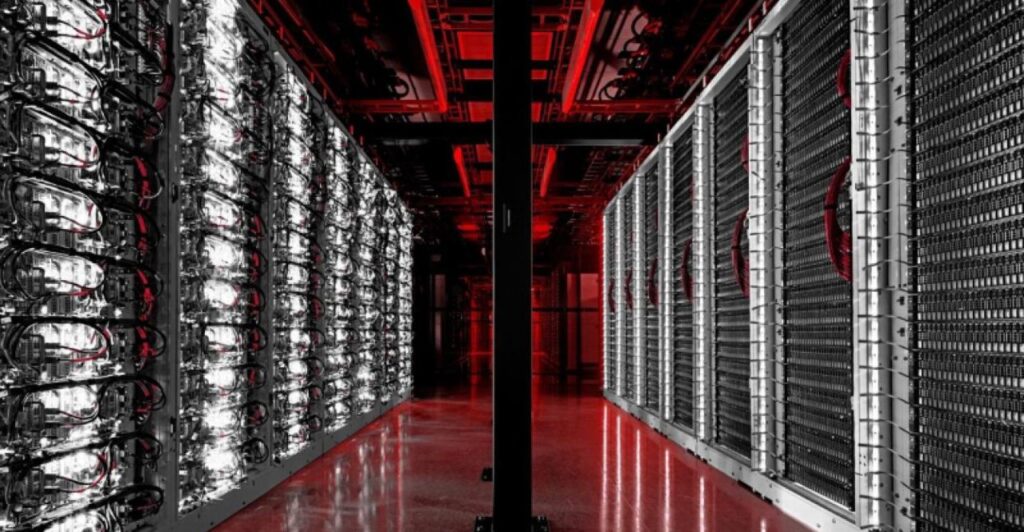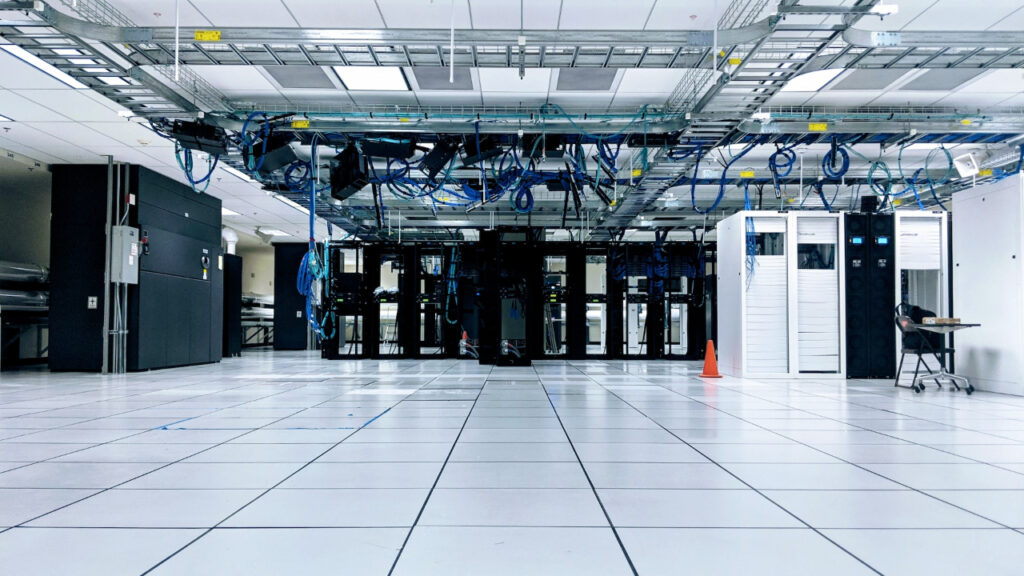The intersection of artificial intelligence (AI) and cloud storage solutions has immense implications for enterprise-level efficiency and innovation. By harnessing the power of AI, businesses can streamline operations, introduce predictive analytics, and deliver more personalized customer experiences. While the integration of AI with cloud storage is still an evolving landscape, its potential is enormous.
This post will dissect the synergy between AI and enterprise cloud storage solutions and demonstrate why businesses cannot afford to overlook this burgeoning advancement.
The Role of AI in Enterprise Cloud Storage

In the realm of enterprise cloud storage, AI’s primary contribution lies in improving efficiency and scalability. Through intelligent algorithms and machine learning, cloud storage platforms can now automatically optimize data storage and retrieval processes, which can be a major boon for businesses dealing with large data sets.
Predictive analytics also play a crucial role, enabling the system to anticipate usage patterns and make data-driven decisions to scale resources proactively.
One significant aspect of AI-enhanced cloud storage is its ability to automate complex data management tasks. The technology can classify data, making it easier to manage and locate, and even aid in the creation of personalized AI models tailored to a company’s unique operation requirements.
AI’s self-learning capabilities also mean that these systems can adapt and improve over time without human intervention, further enhancing scalability and reducing the need for extensive IT oversight.
How Can AI Help Data Security?

To elucidate the potential of AI in enterprise cloud storage, consider the realm of data security. AI algorithms can swiftly detect anomalies within the vast volumes of data stored in the cloud, which could indicate potential security breaches.
By using machine learning to establish baselines for normal system behaviour, AI tools can recognize and respond to abnormal activities, such as unauthorized access or data exfiltration, in real time.
Furthermore, AI equips cloud storage solutions with advanced threat detection capabilities, distinguishing between harmless irregularities and genuinely suspicious activities. Through its adaptive learning, the system can also refine its understanding of threats specific to the enterprise, continuously improving security measures.
Unlock the Potential of Your Data with AI

The depth of AI’s influence on the enterprise cloud storage domain is yet to be fully realized. However, one thing is clear — for businesses aspiring to stay competitive and agile in the digital age, the adoption of AI-enhanced cloud storage solutions is an imperative rather than an option.
By investing in these technologies, enterprises can unlock the full potential of their data. Moreover, it can secure their information assets and pave the way for sustained growth and success.
Reliable Online Storage & Fiber Internet Services by AiNET: Your Digital Solution!
Consider AiNET if you require reliable online storage solutions and flexible fibre optic internet services! AiNET offers a secure and dependable platform for all your storage needs, making it an excellent choice!
In today’s turbo-charged digital realm, freelancers are like modern-day nomads, with the freedom to work from wherever, whenever. But amidst this flexibility comes a tricky challenge: juggling the art of managing and safeguarding their data like digital wizards.
However, with the advent of modern solutions offering unlimited cloud storage, freelancers can now maximize their productivity by leveraging these powerful tools to their advantage.
How to Elevate Your Efficiency With Unlimited Cloud Storage?

At the core of every freelancer’s workflow should be the principle of efficiency. Unlimited cloud storage stands out as a pivotal tool for enhancing this aspect.
By allowing users to store vast amounts of data without worrying about physical storage constraints, freelancers can keep all their work in one easily accessible location. This not only simplifies the process of managing and organizing files but also significantly reduces the time spent searching for documents and data across multiple devices.
Collaborate Seamlessly

One of the standout features of using unlimited cloud storage is the ease with which it facilitates collaboration. Freelancers often work with clients or other freelancers on various projects, and cloud storage provides a platform where files can be shared and edited in real-time.
This means that instead of juggling multiple versions of a document via email, all stakeholders can access the most current version, streamlining the collaborative process and ensuring that everyone is always on the same page.
Access Anywhere, Anytime

The freedom to work from any location is one of the greatest benefits of freelancing, and unlimited cloud storage also amplifies this advantage. By storing files in the cloud, freelancers become untethered to a specific physical location or device.
Whether they’re at a café, on a plane, or at home, accessing and working on their projects is as simple as having an internet connection. This level of accessibility ensures that freelancers can remain productive and meet their deadlines, regardless of where their work takes them.
Secure Your Data With Unlimited Cloud Storage

Data security is a paramount concern for freelancers, as losing access to work or experiencing a data breach can have severe consequences. Unlimited cloud storage solves these worries through robust security measures, including encryption and regular backups.
By storing their work in the cloud, freelancers can rest assured that their data is protected against loss or theft. Moreover, giving them peace of mind and allowing them to focus on their work without concerns over data vulnerability.
Elevate Your Connectivity with AiNET: Unbeatable Solutions for Internet, Data Center, and Cloud Storage
AiNET – Your all-in-one solution for internet, data center, and cloud storage needs. Choose reliability, security, and top service. Join us today for seamless connectivity, unbeatable security, and great support.
Revolutionize your online experience now with AiNET – just a click away!
In the world of modern businesses, a strong internet is like the superhero of success! It’s not just a basic utility – it’s the mighty tool that turbocharges your workflow, sparks creativity, and skyrockets your efficiency. In the digital age, opting for business Fiber internet can be the tipping point that takes your small business, tech startup, or remote work setup from good to great.
Here’s an in-depth look at why business Fiber internet is crucial for productivity and how to make the switch seamless for your enterprise.
What is Fiber?

Fiber-optic internet is a type of broadband that uses Fiber-optic cables to transmit data in the form of light signals. This method is more efficient and faster than traditional copper wire connections.
The result is internet speeds that can range from 250 Mbps to 1 Gbps or more – significantly faster and more reliable than DSL or cable connections commonly found in homes.
Why Choose Fiber Over Other Options?

The main benefits of business Fiber internet are speed and reliability. This makes it ideal for businesses that rely on real-time data, like video conferencing, cloud computing, and large file transfers.
With a fiber connection, you can kiss buffering and slow loading times goodbye, which can save your employees precious hours, and frustration, and can give you a competitive edge over businesses still using slower connections.
The Productivity Spike with Fiber

Business Fiber internet fuels productivity in several ways:
- Faster Upload and Download Speeds: Simple tasks, like sending email attachments and downloading files, are executed in a fraction of the time compared to standard internet connections.
- Enhanced Communication: Instant messaging, voice calls, and video conferencing are crystal clear and without lag, making remote work and virtual collaboration much more effective.
- Improved Software Performance: Cloud-based applications run smoothly, supporting seamless collaboration and remote access to documents.
- Business Continuity: With Fiber’s superior reliability, you’re less likely to experience downtime, ensuring that your business can operate without disruptions.
Making the Switch to Fiber Internet – Is Fiber Internet Good for Business?

While business Fiber internet offers a wealth of benefits, it’s not always the right fit for every business. Before making the switch, consider your current needs and anticipated growth in bandwidth usage.
If your business primarily uses the internet for basic tasks like email and web browsing, Fiber may not be necessary. However, if you have a high volume of data-driven activities or plan to expand your digital capabilities in the future, business Fiber internet is worth exploring.
Enhance Your Internet Experience With AiNET!
AiNET provides dedicated private Fiber networks. Reach out to us to enhance your building, and our team will expertly assist you through the process. Rest assured, we guarantee the most competitive quote available.
If you’re a tech enthusiast or a remote worker looking to upgrade your digital life, finding out if Fiber internet is available in your area is crucial. Fiber-optic internet, with its lightning-fast download and upload speeds, could be the difference between frustration and productivity.
In this post, we’ll walk you through the process of discovering if Fiber internet is accessible to you, ensuring your quest for high-speed connectivity is as smooth as streaming in 4K.
How Do You Explain Fiber Internet?

Before diving into the search, let’s uncover why Fiber internet is such a gem! Here’s what happens: Fiber-optic cables shoot data using light, giving you speeds that leave traditional copper wires in the dust.
We’re talking lightning-fast – think 1,000 megabits per second (Mbps) for both downloading and uploading! This isn’t just a game-changer; it’s like turbocharging your online life. It’s also perfect for pros who need smooth video calls, hefty file transfers, and all things cloud-based!
Unlike cable or DSL, Fiber isn’t easily swayed by pesky electromagnetic noise. And its signals can go the distance without needing a boost. That spells out faster, rock-solid connections, even when everyone’s online at once!
How Do I Know if I Have Fiber Internet in my Area?

The most direct method to check for Fiber internet availability is to use online resources provided by network service providers or by local utilities. Here are some steps to get started:
Step 1: Visit Service Provider Websites
Navigate to the websites of major internet service providers (ISPs) in your area. Look for an option called “Check Availability” or “Find Plans.” Enter your IP address and follow any prompts to see what services are offered in your neighbourhood. Many ISPs now have specialized tools that can give you a detailed look at the plans you’re eligible for, from basic packages to the coveted Fiber optic connections.
Step 2: Utilize Third-Party Tools
If you’re not satisfied with the results from the primary ISPs, there are third-party tools and websites that aggregate ISP offerings. BroadbandNow and InMyArea are examples of platforms that allow you to input your address to see which ISPs provide service to your area. It also shows the types of connections they offer.
Step 3: Contact Local Utilities
In some cases, especially in rural or underserved areas, local government initiatives or community-owned utilities might offer Fiber internet. Contacting these entities directly can give you a faster and more definitive answer on Fiber availability.
They might not show up on ISP aggregators, so don’t skip this step if you’re looking for every available option.
Explore A Range of IT Solutions With AiNET!

At AiNET, we offer a full range of IT solutions, including colocation, cloud storage, and Fiber optics. Customize your IT setup with ease and have peace of mind knowing your services are in good hands. Contact us today to optimize your tech investments!
In today’s digital dance, internet connectivity takes center stage for businesses and homes alike, fueling both fun and learning. Get ready to dive into the ultimate showdown: fiber vs. wireless!
This guide will help you groove through the differences, so you can jam out with the perfect connection tailored to your needs.
Fiber vs. Wireless: Understanding the Fundamentals

Before delving into the intricacies, it is essential to grasp the fundamental disparities of fiber vs. wireless internet connections.
| The Power of Fiber Optics | The Versatility of Wireless |
| Fiber-optic internet, renowned for its superior quality, transmits data through thin strands of glass or plastic referred to as optical fibers. This technology harnesses the capability of conducting modulated light, resulting in exceptional speed and reliability. Unlike traditional copper-based connections, fiber optics are impervious to electromagnetic interference and exhibit minimal signal degradation over extended distances. | Contrary to fiber optics, wireless internet utilises radio waves to transmit data to devices. It encompasses a range of technologies such as satellite, cellular networks, and Wi-Fi, offering unparalleled flexibility. The absence of physical cables makes wireless connectivity a popular choice due to its convenience and accessibility. |
Speed and Dependability

When it comes to consistent high-speed performance and a stable connection, fiber optics take the lead.
| Fiber’s Gigabit Potential | Limitations of Wireless |
| Fiber-optic connections can deliver speeds of up to 1 gigabit per second (Gbps) or even faster in certain instances, catering to bandwidth-intensive activities like 4K streaming and extensive data backups. Furthermore, the symmetrical upload and download speeds of fiber ensure seamless collaboration and cloud computing. | While wireless technologies like 5G are advancing, they are yet to match the maximum speeds achievable through fiber optics. Additionally, wireless connections are prone to inherent latency, which can pose challenges in real-time applications demanding swift decision-making. |
Network Security

Ensuring data security is paramount, especially for businesses. Fibre optics offer enhanced security as they are impervious to common hacking methods. The data transmitted via fiber does not emit electromagnetic signals, making it exceedingly challenging to intercept without compromising the physical cable.
On the contrary, wireless signals are susceptible to interception without adequate encryption and security protocols.
The Cost Factor

Cost is a crucial aspect of any business or household budget, and internet connectivity is no exception. While fiber installations may incur higher initial costs, their lower maintenance requirements can translate to long-term cost efficiency.
Conversely, wireless options, including satellite and cellular networks, might involve higher ongoing service expenses but can present a more economical upfront investment.
Enjoy High Speed, Reliable Internet With AiNET!
AiNET is a reputable provider offering online storage and fiber optic internet services. They provide secure, scalable cloud storage solutions for businesses alongside high-speed, reliable internet connectivity.
For more information, visit AiNET.
In today’s data-driven business landscape, selecting the right data center configuration is crucial for ensuring the success and continuity of your organization. However, conducting a comprehensive assessment of each potential data center can take time and effort.
There are several industry standards that make your job easier and help you make an informed decision. These standards provide guidelines for designing, constructing, and operating data centers. Besides, they also divide them into categories based on their infrastructure capabilities.
One such globally recognized standard is ANSI/TIA-942. In this article, we will explore the ANSI/TIA-942 standard, its significance, and the different rating levels it defines.
What is the ANSI/TIA-942 Standard?

The ANSI/TIA-942 standard, developed by the Telecommunications Industry Association (TIA) and sanctioned by the American National Standards Institute (ANSI), serves as a valuable framework for designing, building, and operating data centers.
It aims to ensure that data centers meet specific requirements in terms of availability, reliability, security, and sustainability. Upon receiving ANSI/TIA-942 certification, data centers are categorized into one of four levels.
ANSI/TIA-942 Standard Rating Levels
The ANSI/TIA-942 standard establishes four rating levels, or tiers, which define a data center’s reliability and redundancy level.
Each tier represents a specific level of performance, reliability, and network resilience, enabling organizations to choose the appropriate tier based on their operational requirements and budget.
Tier 1

Tier 1 is the basic level, providing the least redundancy and fault tolerance. It offers a single path for power and cooling distribution without any redundant components. Tier 1 data centers offer limited availability and can experience planned and unplanned downtime. So, they serve as a suitable option for small businesses or non-critical applications that can tolerate occasional interruptions.
Tier 2
Tier 2 data centers introduce some level of redundancy to critical infrastructure components but have a single, non-redundant distribution path. Tier 2 data centers offer improved availability compared to Tier 1. So, they are suitable for organizations requiring higher uptime but can still tolerate occasional interruptions.
Tier 3

Tier 3 data centers are designed to provide higher redundancy and availability. They have multiple independent distribution paths for power and cooling systems, allowing for maintenance or equipment failures without affecting operations. Tier 3 data centers offer protection against the most physical events. So, if your organization requires continuous availability for critical applications and services, this is your solution.
Tier 4
Tier 4 is the highest level of data center reliability and availability defined by the ANSI/TIA-942 standard. These data centers provide the highest degree of fault tolerance and redundancy. This is because they have multiple active power and cooling distribution paths. It minimizes the risk of downtime due to equipment failures or maintenance activities. Besides, Tier 4 data centers are typically chosen by organizations with mission-critical operations that cannot afford interruptions.
AiNET’s data center is tier-4 certified by the ANSI/TIA-942, which means we offer the highest level of reliability with minimum downtime. Learn more about our data center infrastructure and choose a hosting plan that suits your needs. Get in touch with us today!
The world of data centers is as vast and complex as the digital universe itself. With so many options available, comparing virtual and physical data centers can be intimidating and difficult to navigate.
To help make the decision easier, this article will provide an overview of the key differences between these two types of data centers so that you can determine which best fits your needs.
What Is a Virtual Data Center?
A virtual data center is a cloud-based computing environment in which all resources are stored on remote servers hosted by service providers instead of on-premises hardware. It combines server, storage, networking, security, and software components into one unified platform for efficient management and scalability.
This type of data center is ideal for organizations that need a low-cost and high-performance data infrastructure.
What Is a Physical Data Center?

A physical data center is an on-premises solution that houses all of your hardware in one physical location. It includes servers, storage, networking equipment, software, cooling systems, and other necessary components.
This setup allows for better control over the hardware and environment since it is located right in your organization’s building. However, this option requires more maintenance due to its size and complexity.
Data Security: Comparing Virtual vs Physical Data Center

When it comes to security, virtual data centers generally offer greater flexibility. These providers allow you to manage access levels on a granular level using their in-house security tools as a third party manages their hosting.
Furthermore, virtual data centers are typically monitored and updated more often than physical ones, allowing for better protection against cyber threats.
However, physical data centers can provide superior levels of security due to their isolated nature. Every piece of hardware is physically secure from outside access, and the environment can be tightly controlled for optimal performance.
Cost Comparison: Virtual vs Physical Data Center

The cost associated with virtual data centers is typically lower than that of physical ones. Primarily because they do not require upfront hardware purchases or maintenance costs.
Generally speaking, you only pay for what you need in terms of storage space and computing power. So, if you are a smaller organization on tight budgets, it’s am ideal solution for you.
On the other hand, physical data centers require upfront investments and ongoing maintenance costs. So, they can be expensive in the long run. However, for larger organizations that demand very high levels of security and control, physical data centers may be the better option.
About AiNET
AiNET is a trusted provider of cloud storage and fiber optic internet services for businesses. With secure, scalable solutions and reliable high-speed connectivity, AiNET can offer the perfect online storage solution to meet your business needs.
Visit us today to learn more!
In a surprising turn of events, one of the world’s leading car manufacturers, Toyota, recently found itself in a state of crisis.
This crisis wasn’t about car designs or production logistics but rather about something that might sound mundane: insufficient disk space.
In this blog post, we’ll reveal why Toyota had to shut down 14 of its factories in Japan due to computer issues. We will also discuss the learnings of this infamous catastrophe. Let’s dig in!
The Storage Crisis: Toyota’s Factory Shutdown
There’s no such thing as excessive storage space, even for leading automobile companies like Toyota!
In late August, Toyota was forced to halt production on 28 assembly lines spread across 14 auto plants in Japan due to computer-related problems. Reuters estimates that these Japan-based plants are responsible for approximately one-third of Toyota’s worldwide car production.
On September 6th, Toyota released additional information on the shutdown, revealing that “the issue was caused by an error resulting from insufficient disk space.”
The Cause of Disruption: System Maintenance Gone Wrong

In a statement by Toyota, the recent plant shutdowns were attributed to a system maintenance operation conducted a few days earlier. This maintenance involved the deletion and organization of accumulated data within the database.
Unfortunately, a problem occurred during this process due to insufficient disk space, resulting in a system failure. Additionally, the servers responsible for running the system were also connected to the backup system, which meant that the same issue affected the backup. This situation made it impossible for the company to switch to an alternative system.
Impact on Production

According to initial news reports, the shutdown occurred due to a malfunction in the system responsible for handling orders for incoming vehicle components. As The Guardian suggested, this malfunction could have disrupted Toyota’s “just-in-time” system.
Just in time is a logistics method to minimize costs by maintaining only the necessary parts for car assembly at specific assembly points. However, as evident, this approach crumbles when you cannot procure the required parts on time.
In their statement, Toyota expressed their apologies to “customers, suppliers, and related parties.”
The company regretted any inconvenience resulting from the suspension of its domestic plants.
“We would like to apologize once again to our customers, suppliers, and related parties for any inconvenience caused by the suspension of our domestic plants.”
~Toyota
Toyota’s Resolution and Preventive Measures

In response to the operational disruption, Toyota’s engineers successfully resolved the issue by migrating to a server with increased storage capacity.
This shift resulted in the resumption of plant operations the following day. The company has taken additional measures to prevent a recurrence by replicating and rigorously verifying the situation.
Amidst initial speculations of a potential cyberattack, Toyota clarified that security concerns were not the root cause of the disruption. The company emphasized its commitment to enhancing maintenance procedures in an unsigned communication. They aim to improve preventive efforts to ensure the uninterrupted production of vehicles, thereby meeting customer demands promptly.
Conclusion: Scalable, Flexible Data Storage Solutions are Critical!
The key takeaway from this narrative is evident. Partner with data storage providers that can ensure immediate access to additional storage capacity. This lesson is particularly relevant for large corporations relying on precise software timing to construct intricate machinery.
To cater to this pressing need, AiNET presents its robust cloud storage and computing solutions. Combining our data centers, fiber optic networks, and cloud storage, AiNET supports 1 billion people daily in keeping their systems up and running.
Join forces with AiNET today and experience unparalleled connectivity and resilience, all while reducing operational costs, finger-pointing, and vendor complexities
In a surprising turn of events, one of the world’s leading car manufacturers, Toyota, recently found itself in a state of crisis. This Toyota’s Factory Shutdown crisis wasn’t about car designs or production logistics but rather about something that might sound mundane: insufficient disk space.
In this blog post, we’ll reveal why Toyota had to shut down 14 of its factories in Japan due to computer issues. We will also discuss the learnings of this infamous catastrophe. Let’s dig in!
The Storage Crisis: Toyota’s Factory Shutdown

There’s no such thing as excessive storage space, even for leading automobile companies like Toyota!
In late August, Toyota was forced to halt production on 28 assembly lines spread across 14 auto plants in Japan due to computer-related problems. Reuters estimates that these Japan-based plants are responsible for approximately one-third of Toyota’s worldwide car production.
On September 6th, Toyota released additional information on the shutdown, revealing that “the issue was caused by an error resulting from insufficient disk space.”
The Cause of Disruption: System Maintenance Gone Wrong

In a statement by Toyota, the recent plant shutdowns were attributed to a system maintenance operation conducted a few days earlier. This maintenance involved the deletion and organization of accumulated data within the database.
Unfortunately, a problem occurred during this process due to insufficient disk space, resulting in a system failure. Additionally, the servers responsible for running the system were also connected to the backup system, which meant that the same issue affected the backup. This situation made it impossible for the company to switch to an alternative system.
Impact on Production

According to initial news reports, the shutdown occurred due to a malfunction in the system responsible for handling orders for incoming vehicle components. As The Guardian suggested, this malfunction could have disrupted Toyota’s “just-in-time” system.
Just in time is a logistics method to minimize costs by maintaining only the necessary parts for car assembly at specific assembly points. However, as evident, this approach crumbles when you cannot procure the required parts on time.
In their statement, Toyota expressed their apologies to “customers, suppliers, and related parties.”
The company regretted any inconvenience resulting from the suspension of its domestic plants.
“We would like to apologize once again to our customers, suppliers, and related parties for any inconvenience caused by the suspension of our domestic plants.”
~Toyota
Toyota’s Resolution and Preventive Measures

In response to the operational disruption, Toyota’s engineers successfully resolved the issue. They migrated to a server with increased storage capacity.
This shift resulted in the resumption of plant operations the following day. The company has taken additional measures to prevent a recurrence by replicating and rigorously verifying the situation.
Amidst initial speculations of a potential cyberattack, Toyota clarified that security concerns were not the root cause of the disruption. The company emphasized its commitment to enhancing maintenance procedures in an unsigned communication. They aim to improve preventive efforts to ensure the uninterrupted production of vehicles, thereby meeting customer demands promptly.
Conclusion: Scalable, Flexible Data Storage Solutions are Critical!
The key takeaway from this narrative is evident. Partner with data storage providers that can ensure immediate access to additional storage capacity. This lesson is particularly relevant for large corporations relying on precise software timing to construct intricate machinery.
To cater to this pressing need, AiNET presents its robust cloud storage and computing solutions. Combining our data centers, fiber optic networks, and cloud storage, AiNET supports 1 billion people daily in keeping their systems up and running.
Join forces with AiNET today and experience unparalleled connectivity and resilience, all while reducing operational costs, finger-pointing, and vendor complexities
Have you ever wished that you had unlimited access to all your data and files from any device, anytime, anywhere? Well, it’s now possible with cloud storage.
Cloud storage is an online solution for storing, sharing, and managing large amounts of data. It can range from storing a few megabytes to petabytes of information in the cloud— accessible from any device connected to the Internet.
AiNET: Leading Solutions Provider for Cloud Storage

Are you looking for a secure, reliable, and cost-effective cloud storage solution? Look no further than AiNET. They are one of the leading providers of cloud solutions in the industry today. With their cutting-edge technology and experienced team of experts, they are the perfect solution to help you get your data online and securely.
What Makes AiNET Different?

AiNET stands out from other cloud storage providers because of its focus on customer service and satisfaction. They understand that customers need a system that they can tailor to fit their specific needs. With this in mind, they offer a wide range of services— from basic to advanced— so that each user can find the right option for them.
Their cutting-edge technology also ensures that your data is always safe and secure. Their state-of-the-art servers provide the highest levels of protection available. So you never have to worry about unauthorized access or hackers getting into your system. Additionally, they are constantly upgrading their systems to stay ahead of the competition and provide you with the latest technology.
Other Benefits of AiNET Cloud Storage

When you’re storing data in the cloud, there are several benefits that come along with using a reliable provider like AiNET. For starters, they offer UNLIMITED storage options, so you don’t have to worry about running out of space. Their user-friendly interface is also easy to use, enabling customers to quickly access and manage their data from any device.
Furthermore, your files are backed up regularly and automatically with their reliable services. For the users who store sensitive information online, it means extra peace of mind.
Finally, AiNET offers great value for money. Their competitive pricing plans make it easy to get started without breaking the bank. Plus, they have a wide range of features and services that make it easy to customize your cloud storage plan according to your individual needs.
Conclusion

In conclusion, AiNET is the perfect choice for businesses and individuals looking for a secure, reliable, and cost-effective solution for storing large amounts of data online. With their cutting-edge technology, experienced team of experts, and competitive pricing plans, they are sure to meet all your needs when it comes to cloud storage.
So why wait? Get started today with AiNET’s cloud storage solutions!










